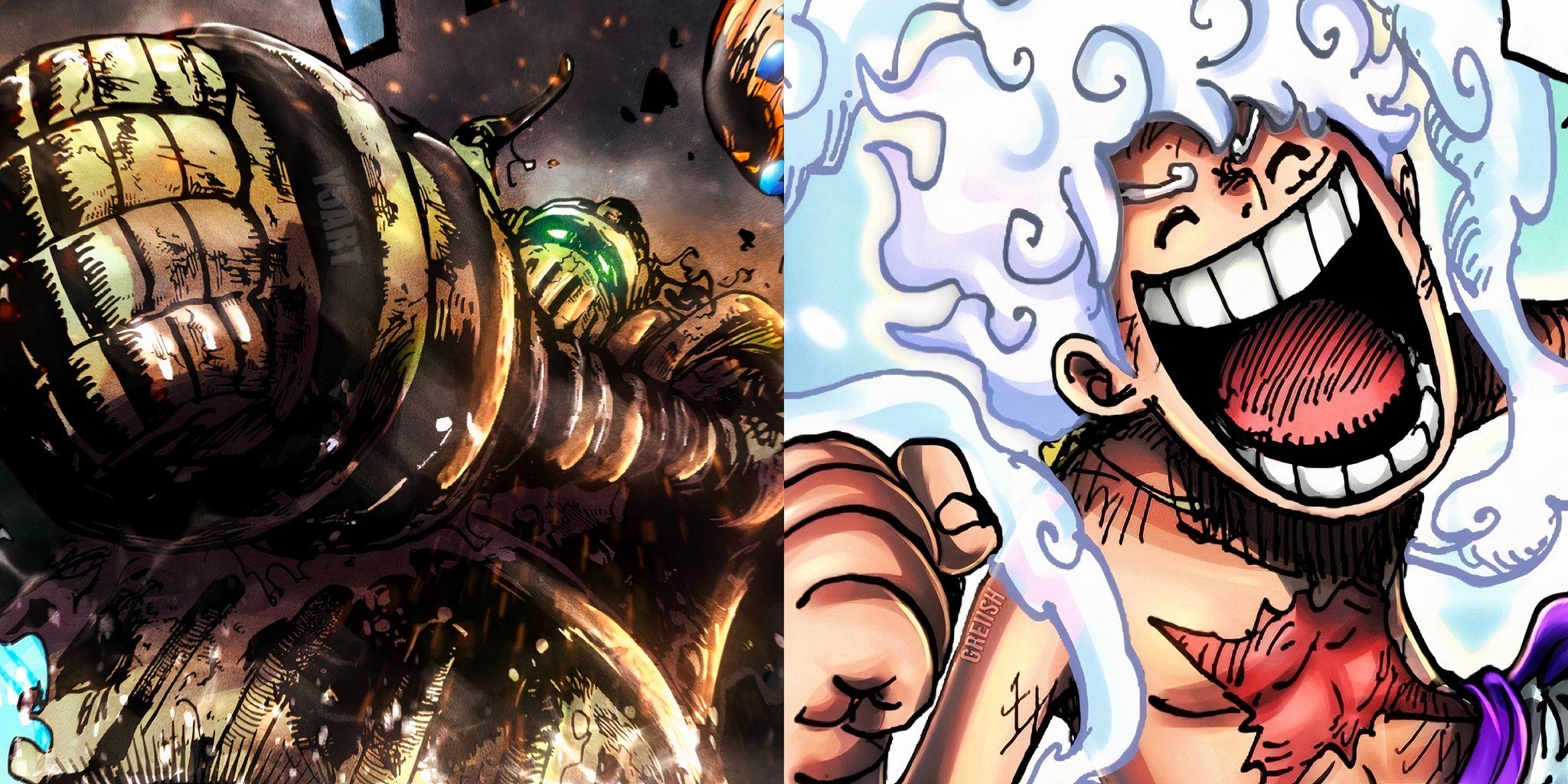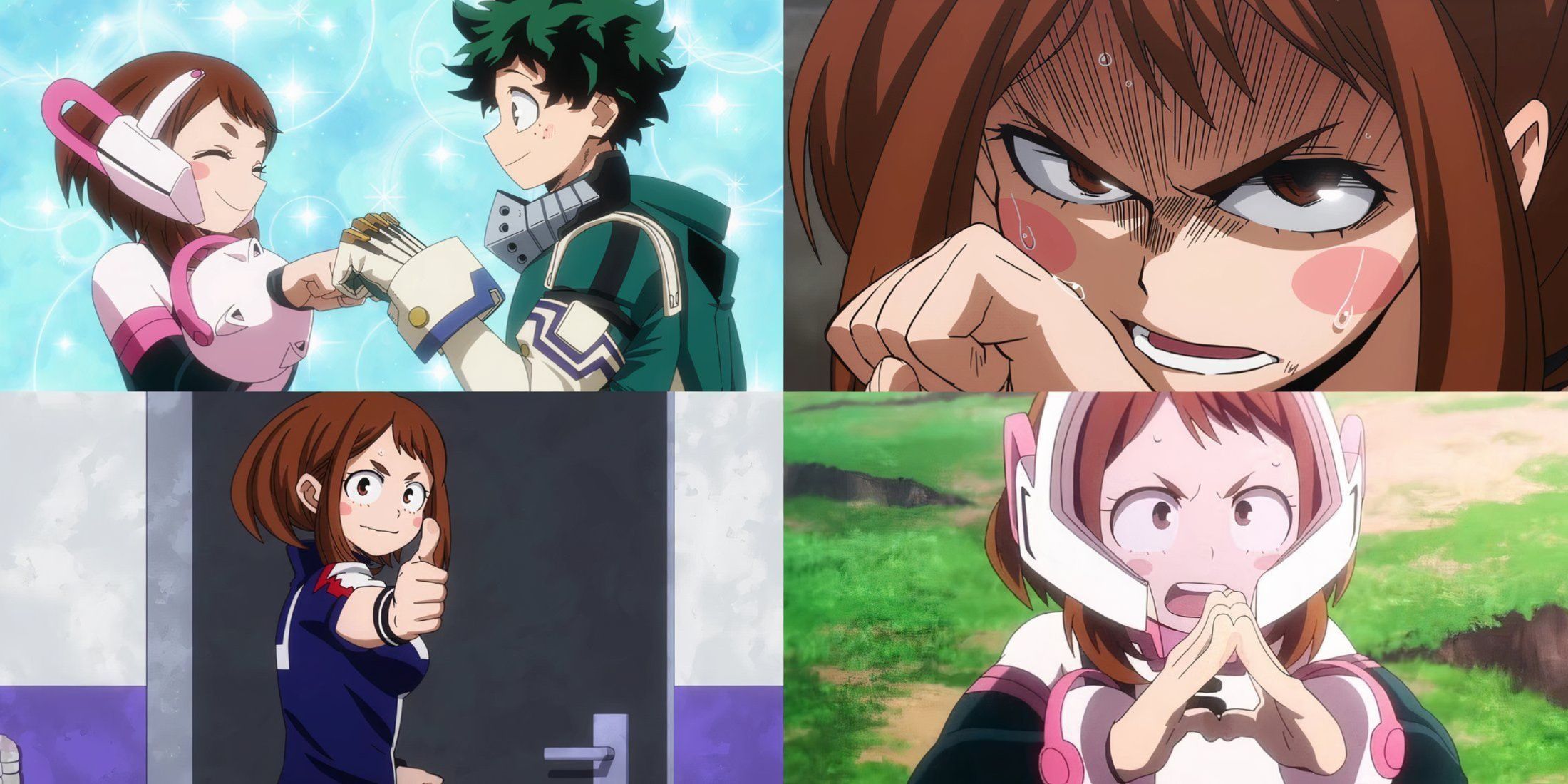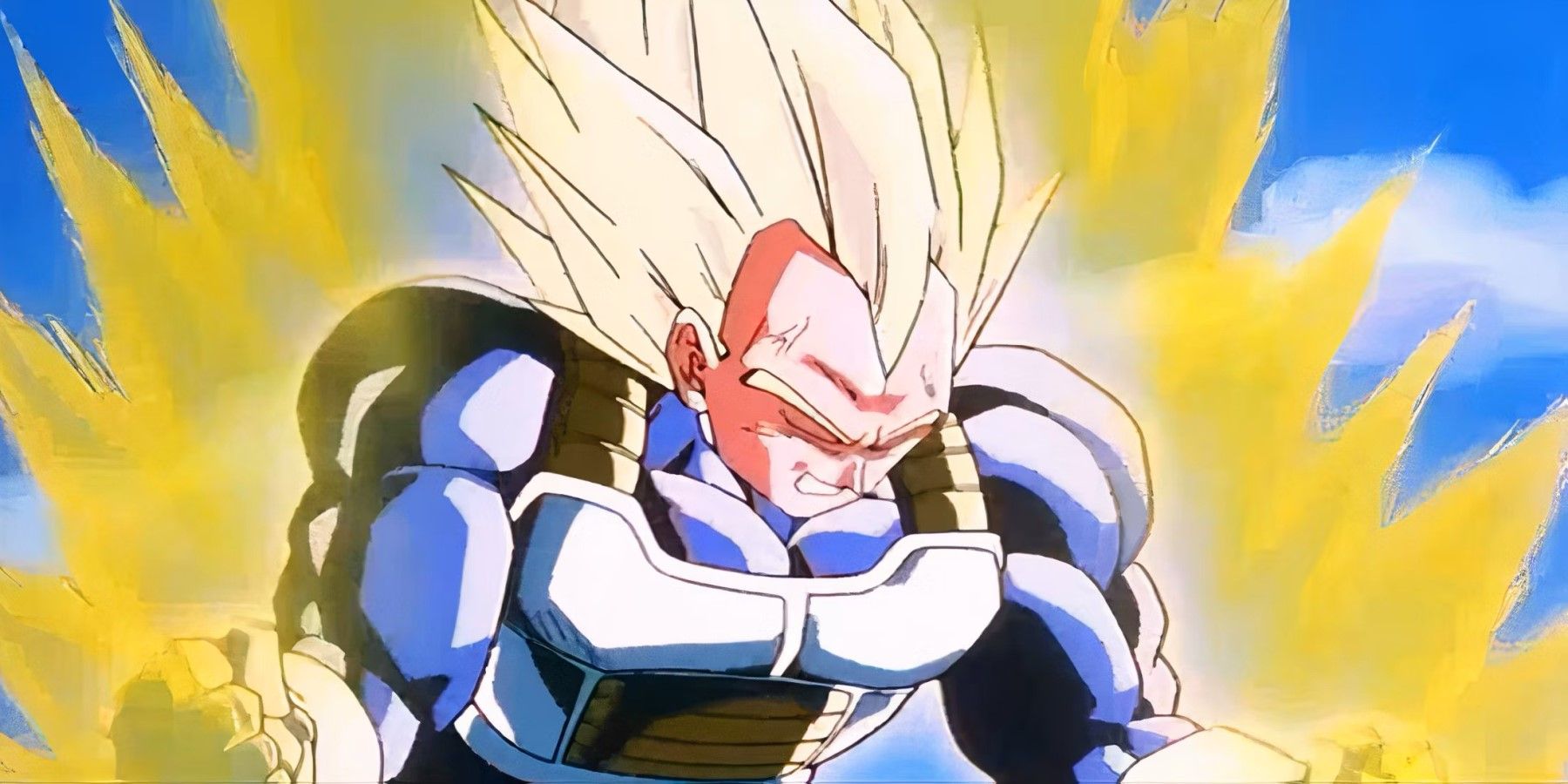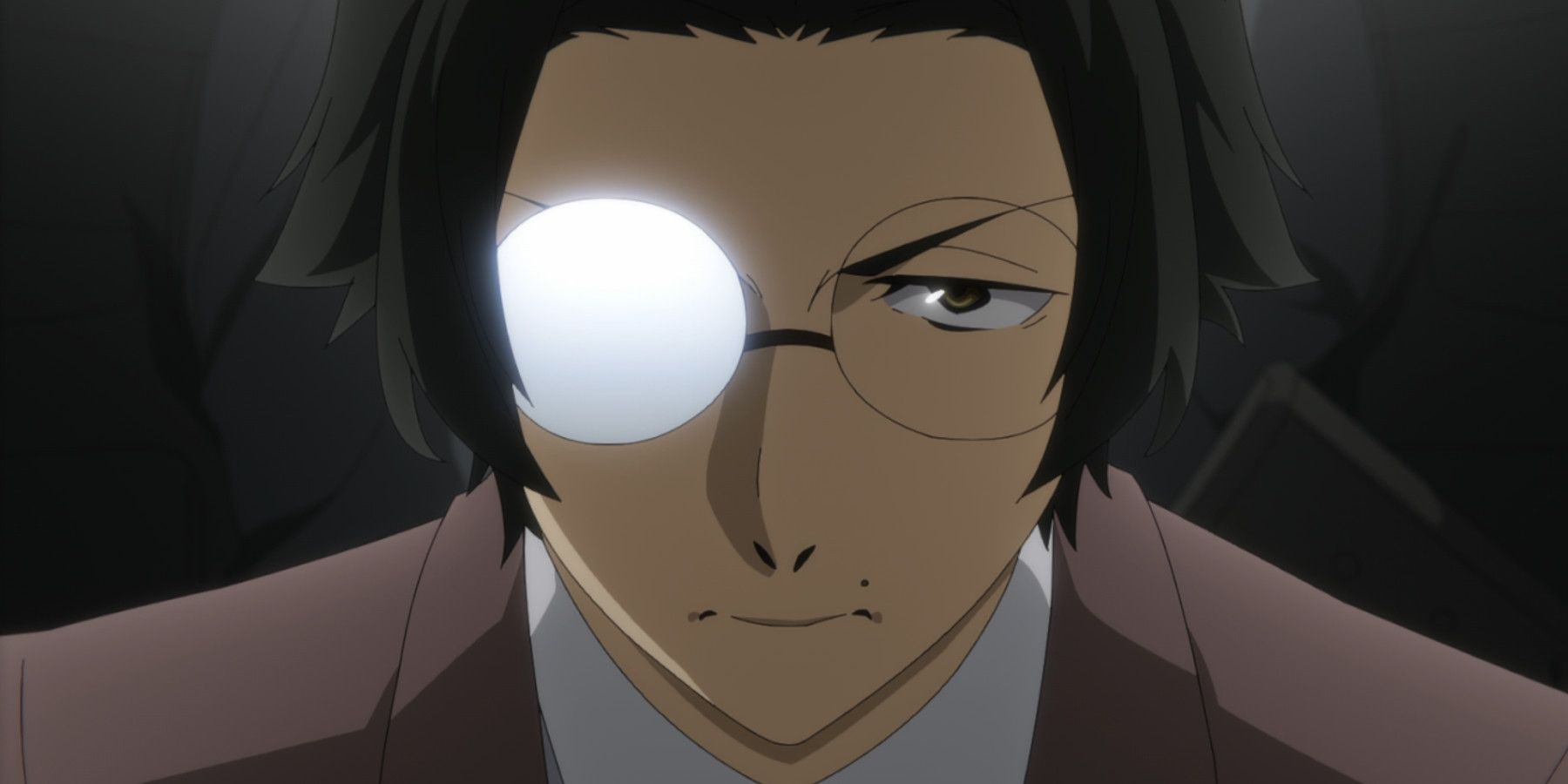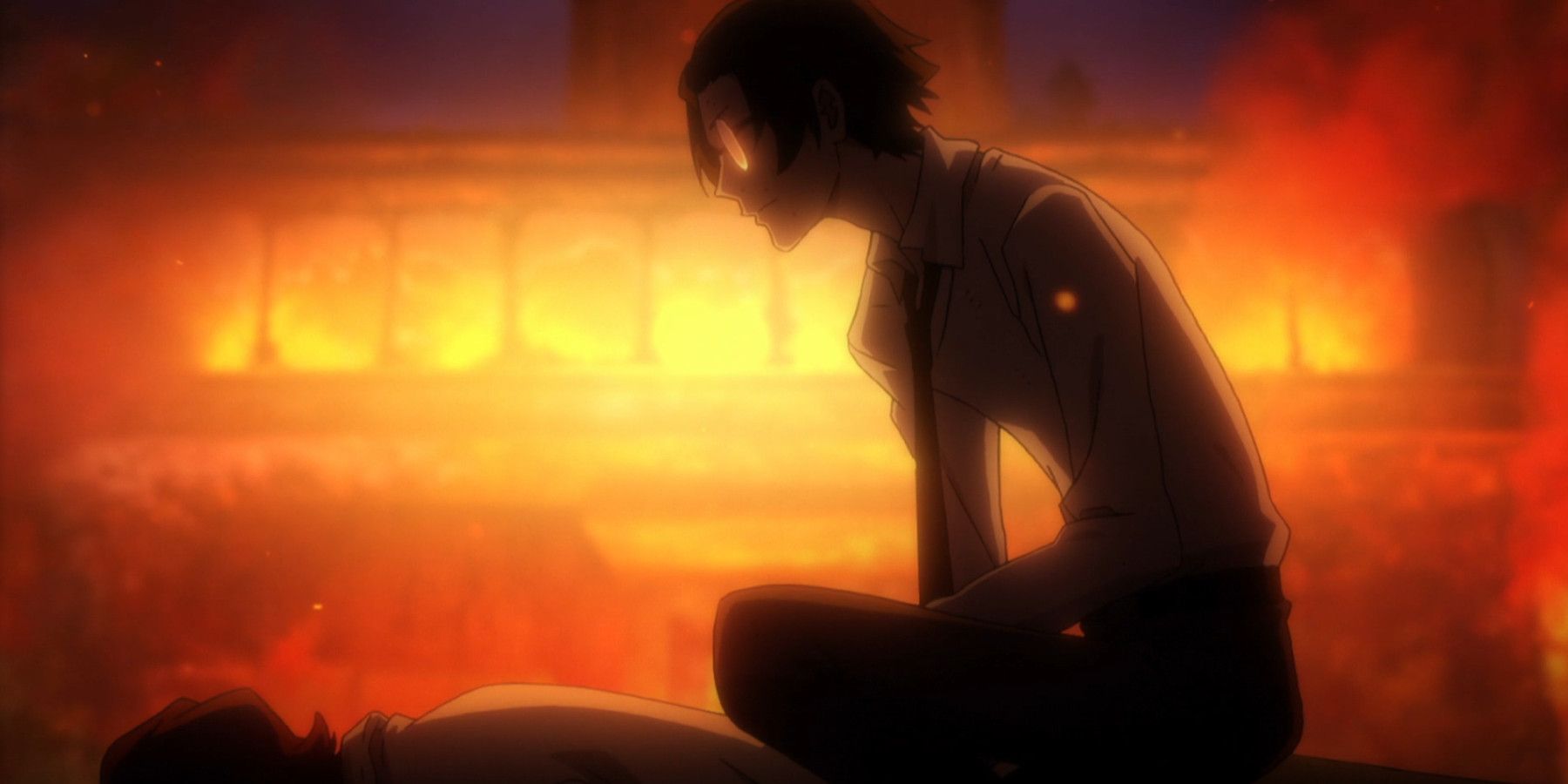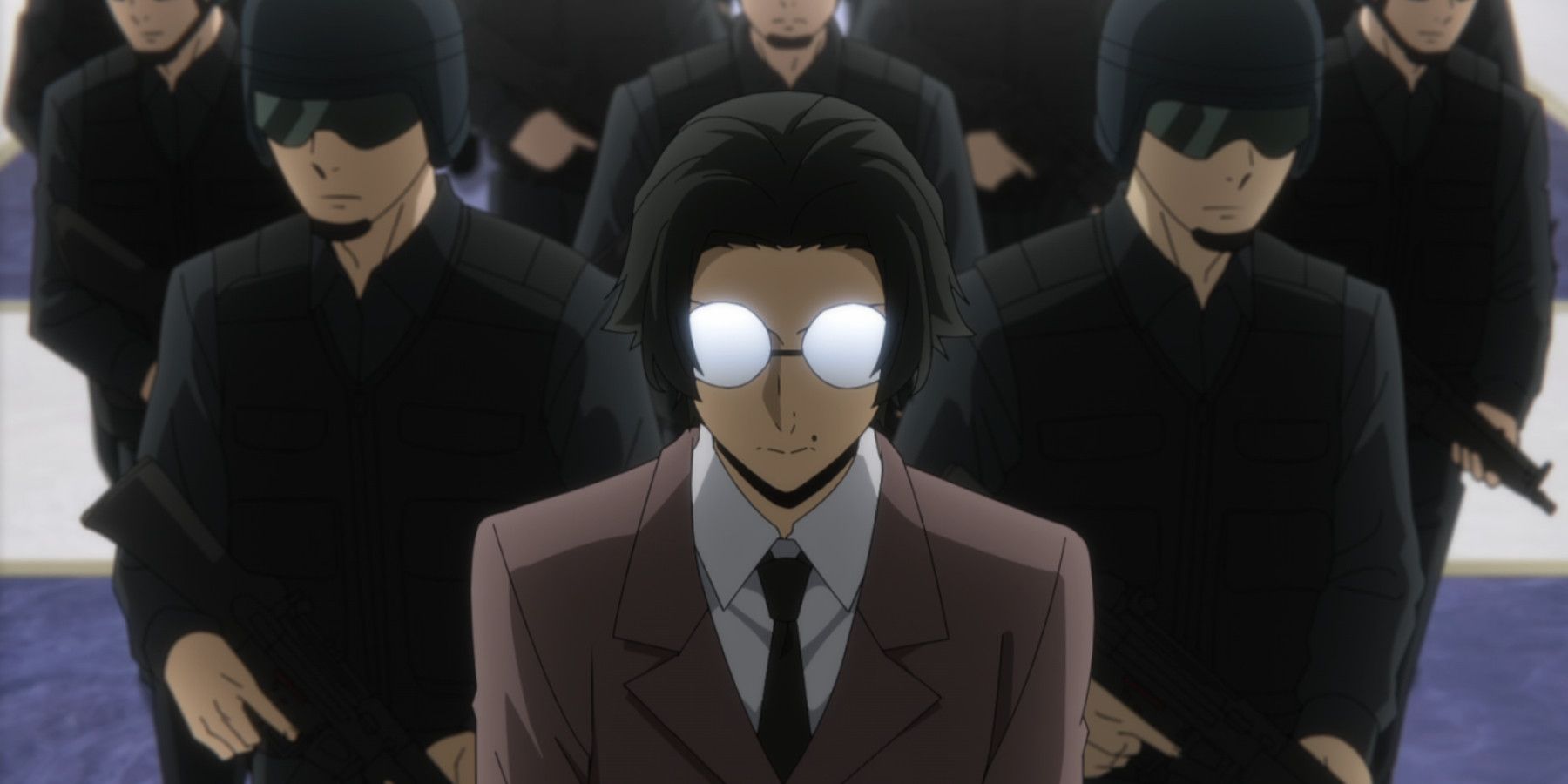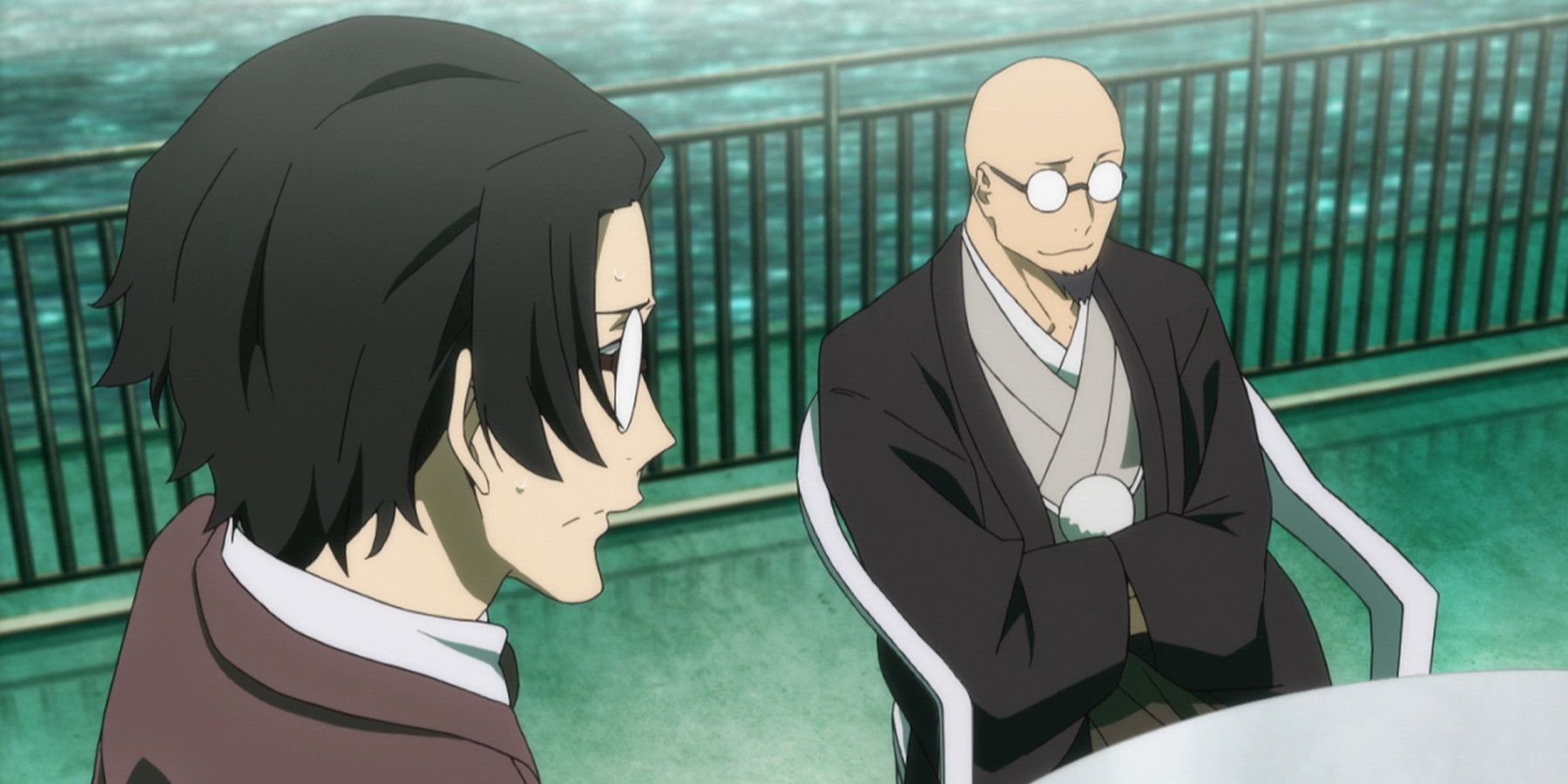The Dark Era of Bungo Stray Dogswas a defining moment for the franchise and its characters, especially Osamu Dazai, but one other character from that story has yet to receive closure from those events. Ango Sakaguchi was introduced as an intelligence operative for the Port Mafia, and ever since his betrayal, he's been a mascot of sorts for the government faction of the story.
Season 4, currently approaching its climax as of the time of writing, has been very particular about when to bring members of its expansive cast onto the stage, and Ango is no exception. After the framing of the Armed Detective Agency, and the stabbing of Chief Tanaka, Ango's time on screen has been brief, but the newest episode, "Jailbreak" changes his perception in a big way.
The Betrayer
Ango, Oda, and Dazai were three friends that couldn't have been more different, either in temperament or their positions in the mafia, yet they made a habit of meeting for drinks after work. The beginning of Season 2 introduces them together with a casual warmth that immediately communicates their friendship, all so that it can be torn down soon after.
The Dark Era arc begins with Oda's investigation of Ango's sudden disappearance - kidnapped by the militia known as Mimic. But as soon as Oda finds him, it's quickly revealed that Ango isn't all that he appears to be. In truth, he's a member of the Gifted Special Operations Division of the Japanese government. But that alone isn't how he betrays them.
His betrayal was coordinating a truce between the Port Mafia and Special Operations to deal with Mimic. The terms were simple: in exchange for more power, the Mafia would eradicate Mimic, and after they murdered the orphans under Oda's care, he carried out the task himself. In the end, the city was safe, but at the cost of Oda's life, and the friendship between Dazai and Ango.
The Suit
From the conclusion of the Dark Era onward, Ango is something of a punching bag for many of the characters, and a symbol of the government's often heartless approach to upholding public safety. The glare off of his round classes is not merely stylistic, but commonly a reflection of how he's hidden his true feeling beneath his duty.
In Season 2, Dazai confronts Ango to extract intelligence from him, making no secret of his dislike for the man given his betrayal. He even sabotaged Ango's car so that when it got attacked while they were riding, Ango would be bedridden while Dazai was fine. It's so quintessentially Dazai in the most twisted way but furthermore reflects his grudge.
Even in the film, Dead Apple, Chuuya is just as angry for a completely different catastrophe, namely that the government worked with the film's antagonist in the past, resulting in the deaths of Chuuya's friends, seen at the start of the film. Every time Ango showed up, he was either an informant, a symbol of the Special Division's power or the one held accountable for their screw-ups.
And the government is proven through the story to be nothing but agitators in conflicts, simply trying to fight fire against fire. The architecture of their buildings is cold, gray, and technologically advanced, but bearing no humanity or warmth. All that remains of that humanity in Ango is the brown of his suit, which in warm light echoes the friendship he shared with Dazai and Oda. It's no wonder why the Agency was created as the balance between the mafia and the government.
The Regretful
But everything about what defines Ango is flipped on its head with two particular episodes this season. The first is during his brief appearance in Episode 45, where he discusses the morality of another icon of the government: Chief Taneda. Taneda has always appeared as a much friendlier face, or at least a more confident and powerful individual, certain in his justice. But then, Ango expresses his disdain for their brand of justice.
"The chief quantifies human lives. Sacrifice one to save a hundred. I couldn't stand that."
It's not necessarily a startling discovery to learn that Ango dislikes the kind of thinking that led to the sacrifice of Oda, nor does his acknowledging it exonerate him from his responsibility. However, it certainly helps build up what comes next. Episode 48 was slightly more relaxed from the tension and emotional damage in the past weeks, but the twists and turns surrounding Ango paid off an arc some fans may not have been paying attention to.
The "revelation" that Ango might be working for a criminal organization within the government alone was quite a leap and one so sudden that it seemed off from the start. But to be honest, it would be a lie to say I wasn't dreading his encounter with the Agency. Would he believe them at all? Would he be so focused on finding the murderer that he'd kill them without a thought? With the reveal of his power to read memories, the very thing that Ranpo warned them about, it truly seemed like he was nothing but an obstacle. And yet, for the first time, he fully acts on his own and not as a vessel of the agency. The detail about the "Seventh Agency" wasn't even a red herring, as Ango really did associate with them to help Dazai start a new life.
The real-life Ango Sakaguchi was an author who rose to prominence in the aftermath of World War II as part of a school of writers expressing the identity crisis of post-war Japan. His essay "Darakuron" or "Discourse on Decadence" was about Bushido - the samurai code - as it existed in Japanese culture during the war. Much like Akiko Yosano, he was critical of Bushido and this is highly evident in his portrayal in the anime. Ango's true nature has often been difficult to discern because of his straight-laced demeanor, yet his perspiring, cracked facade when challenged on the actions of his organization. In retrospect, he's defined by his uncertainty about the morality of his actions and what the meaning of justice is. His own boss, Taneda, represents an older way of thinking - of Bushido, evidenced by his traditional attire and willingness to sacrifice himself. But Ango wants to value life.
With the newest episode, Bungo Stray Dogs might not have fully concluded Ango's story, but the anime has certainly brought his character full circle and given him some appreciable agency. Thanks to him, the odds are looking way better for the agency, and there is an undercurrent of hope in spite of it all. There's only one question: how on Earth is this season going to wrap up in just two more episodes?
